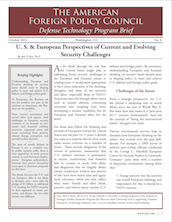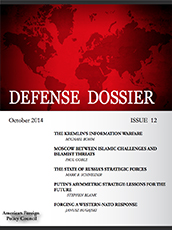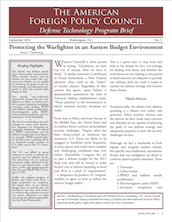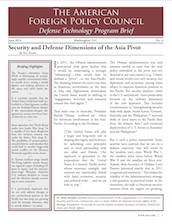
U. S. & European Perspectives of Current and Evolving Security Challenges
As we think through the role that the United States might play in addressing future security challenges in the European and Eurasian arenas in coming years, it would seem appropriate to have some indication of the thinking, thoughts, and ideas of our partners and allies—especially those in NATO. Americans may feel strongly about issues such as missile defense, countering terrorism and stopping Iran from developing a nuclear capability, but do European and Eurasian allies feel the same?...


